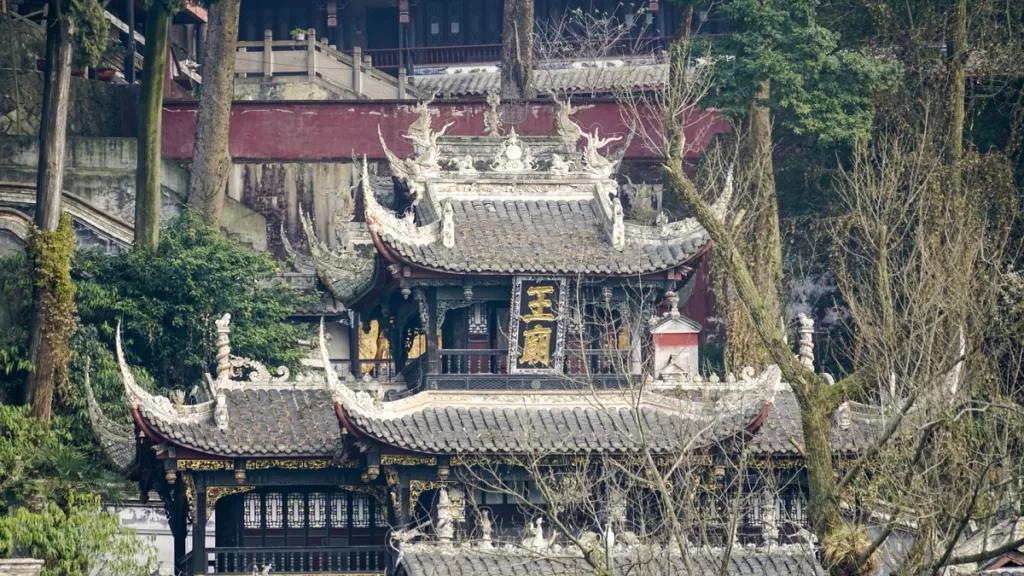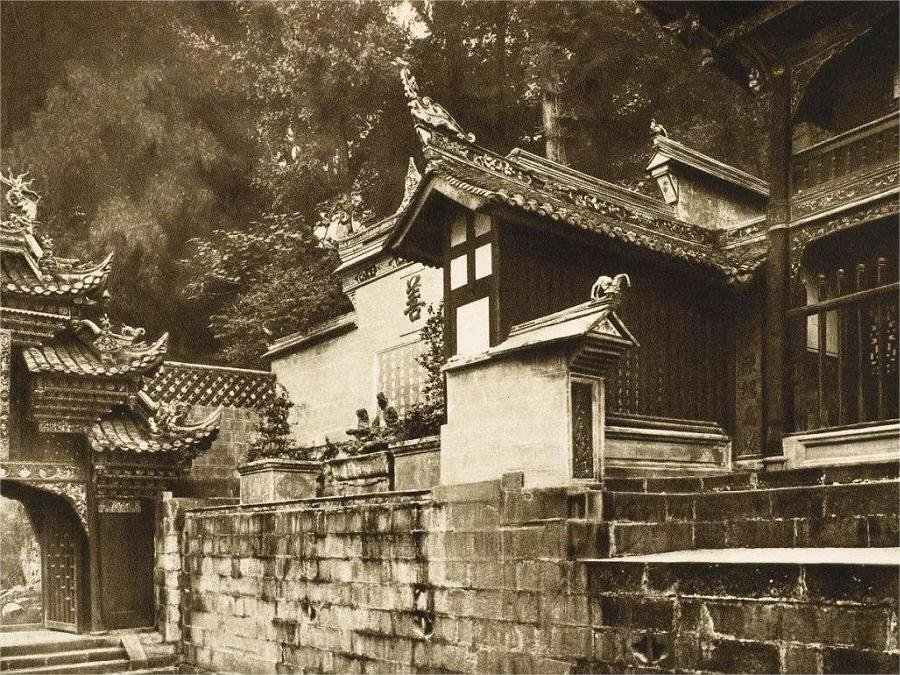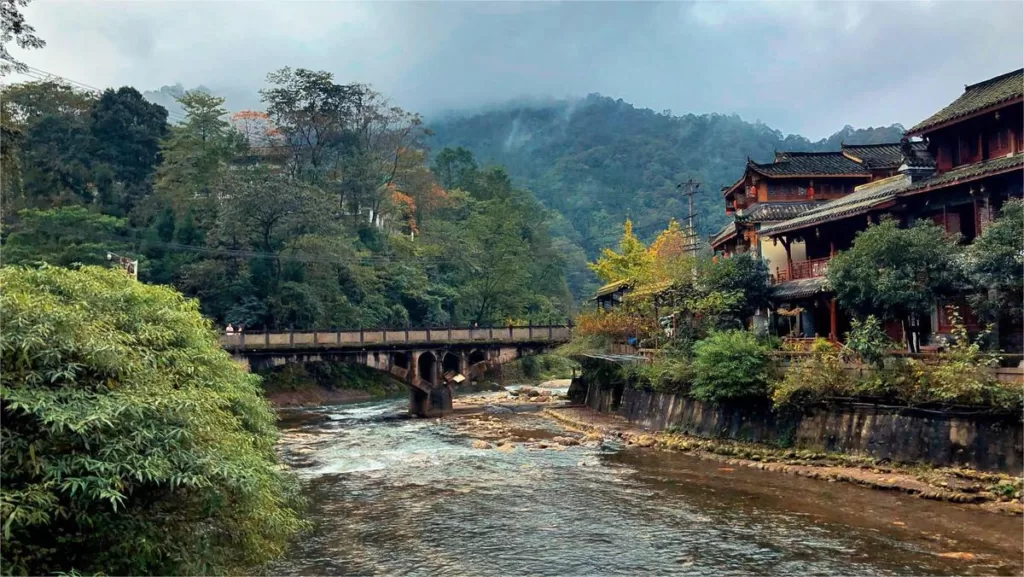Erwang Temple – Ticket, Opening Hours, Highlights, and Tips


Erwang Temple (二王庙), nestled within the cultural tapestry of Dujiangyan, serves as a commemorative shrine to honor the ancient hydraulic experts, Li Bing and his son. It stands as an integral part of the Dujiangyan Irrigation System, a UNESCO World Heritage Site.
Historical records recount the frequent floods of the ancient Min River (known as the Minjiang), prompting Li Bing, the governor of Shu during the Qin Dynasty, and his son to lead a massive undertaking to carve the Dujiangyan Irrigation System. This engineering marvel not only regulated the river’s flow but also provided irrigation and navigation benefits to the Chengdu Plain, mitigating the perils of floods and droughts. Originally known as the Wangdi Temple, it was later renamed Chongde Temple as a place for people to remember and revere. During the Song Dynasty, Li Bing and his son were posthumously honored as kings by imperial decree, leading to the renaming of the temple as Erwang Temple (Double Kings Temple).
Adorned with stone inscriptions bearing the water management wisdom of Li Bing and his descendants, the temple features profound sayings such as “Dig deep channels, build low weirs,” collectively known as the “Classic of Water Management.” Within the temple, statues of Li Bing and his son Er Lang stand, while a teahouse perched on the cliff’s edge to the east of the main hall provides visitors with a breathtaking setting to enjoy tea. To the right of the rear hall, inscriptions by renowned artists like Zhang Daqian and Xu Beihong contribute to the cultural richness of Erwang Temple.
The temple enjoys vibrant popularity, and from the 24th to the 26th day of the 6th lunar month each year, it hosts a lively temple fair, attracting locals and tourists alike to partake in the festive activities and pay homage to the revered figures of Li Bing and his son.
Table of Contents
- Basic Information
- Location and Transportation
- Highlights of Erwang Temple
- Vlog about Erwang temple
- Tour Tips
- Attractions Near Erwang Temple
Basic Information
| Estimated Length of Tour | 1 hour |
| Ticket Price | The admission fee is included in the ticket for the Dujiangyan Irrigation System |
| Opening Hours | 8.00 – 17.00 throughout the year |
| Telephone Number | 0086-028-96526 |
Location and Transportation
Erwang Temple occupies a picturesque spot at the foot of Mount Yulei, nestled between lush green hills and scenic landscapes. It is strategically positioned near the banks of the Min River, which flows through the region.
The temple is within the Dujiangyan Scenic Area, next to the Anlan Suspension Bridge, in the outskirts of Chengdu, Sichuan Province, and serves as a major attraction. You cannot miss it once you come close to the irrigation system.
Highlights of Erwang Temple
Architectural Splendor

Erwang Temple showcases the beauty and intricacy of traditional Chinese architecture. Elaborate woodwork, colorful paintings, and exquisite carvings adorn the halls, pavilions, and courtyards, capturing the essence of ancient craftsmanship. The attention to detail is awe-inspiring, with every element reflecting a rich cultural heritage. The architectural design harmoniously combines elegance, symmetry, and symbolism, creating a visually stunning experience for visitors. Erwang Temple stands as a testament to the skill and artistry of the craftsmen who created it, offering a glimpse into the architectural brilliance of ancient China.
Historical Significance

Erwang Temple holds immense historical significance as a tribute to Li Bing and his son Li Erlang, who were instrumental in constructing the Dujiangyan Irrigation System during the Qin Dynasty over 2,000 years ago. This innovative engineering feat revolutionized irrigation practices, preventing floods and ensuring water distribution for agriculture in the region. Erwang Temple stands as a testament to their achievements and the lasting impact of their work. It serves as a symbol of China’s ancient wisdom and engineering prowess, attracting visitors who seek to understand and appreciate the historical roots of China’s hydraulic systems.
Cultural Relics

Erwang Temple is home to a collection of fascinating cultural relics that provide insights into the temple’s historical and cultural significance. Visitors can explore ancient tablets, inscriptions, and artifacts that showcase the rich heritage of the region. These relics offer a glimpse into the lives, beliefs, and achievements of past generations. Each artifact tells a story, preserving the legacy of Dujiangyan and its connection to the renowned engineer Li Bing and his son Li Erlang.
Natural Surroundings

The natural surroundings of Erwang Temple are truly captivating, providing a serene and picturesque environment. Nestled at the foot of Mount Yulei in Dujiangyan, the temple is embraced by lush green hills, verdant forests, and scenic landscapes. The harmonious blend of human-made structures and nature creates a tranquil ambiance that invites contemplation and relaxation. Visitors can stroll through the temple’s gardens, breathing in the fresh air and marveling at the natural beauty that surrounds them. The scenic backdrop enhances the spiritual experience, offering a serene escape from the hustle and bustle of everyday life.
Religious Experience

As an active place of worship, Erwang Temple provides an opportunity to witness and participate in traditional Chinese religious practices (Fairs at Erwang Temple). Devotees come to the temple to pay their respects to Li Bing, seeking blessings for agricultural prosperity, water conservation, and personal well-being. The temple’s spiritual ambiance, adorned with incense and prayer offerings, creates a reverent atmosphere. Visitors can observe or join in religious rituals and ceremonies, deepening their understanding of Chinese religious traditions.
Vlog about Erwang temple
Tour Tips
Research and Learn: Before visiting, take some time to research the history, significance, and cultural aspects of the Erwang Temple. Understanding the background will enrich your visit and help you appreciate its importance.
Engage in Cultural Experiences: Take part in religious practices if you feel comfortable doing so. Offer incense, light a candle, or make a respectful gesture to show reverence. Remember to follow the lead of locals and observe proper protocol during these activities.
Engage with Locals: If you’re interested, strike up conversations with locals or temple staff. They may be happy to share insights, stories, or answer any questions you have. This can deepen your understanding of the temple’s significance and provide a more immersive experience.
Attractions Near Erwang Temple

Dujiangyan Panda Base – A breeding center with over 50 Pandas

Qingcheng Back Mountain – A majestic and serene destination

Mount Qingcheng – One of the most renowned Taoist mountains

Dujiangyan – One of the greatest engineering achievements of ancient China
Chengdu attractions, Sichuan historical site